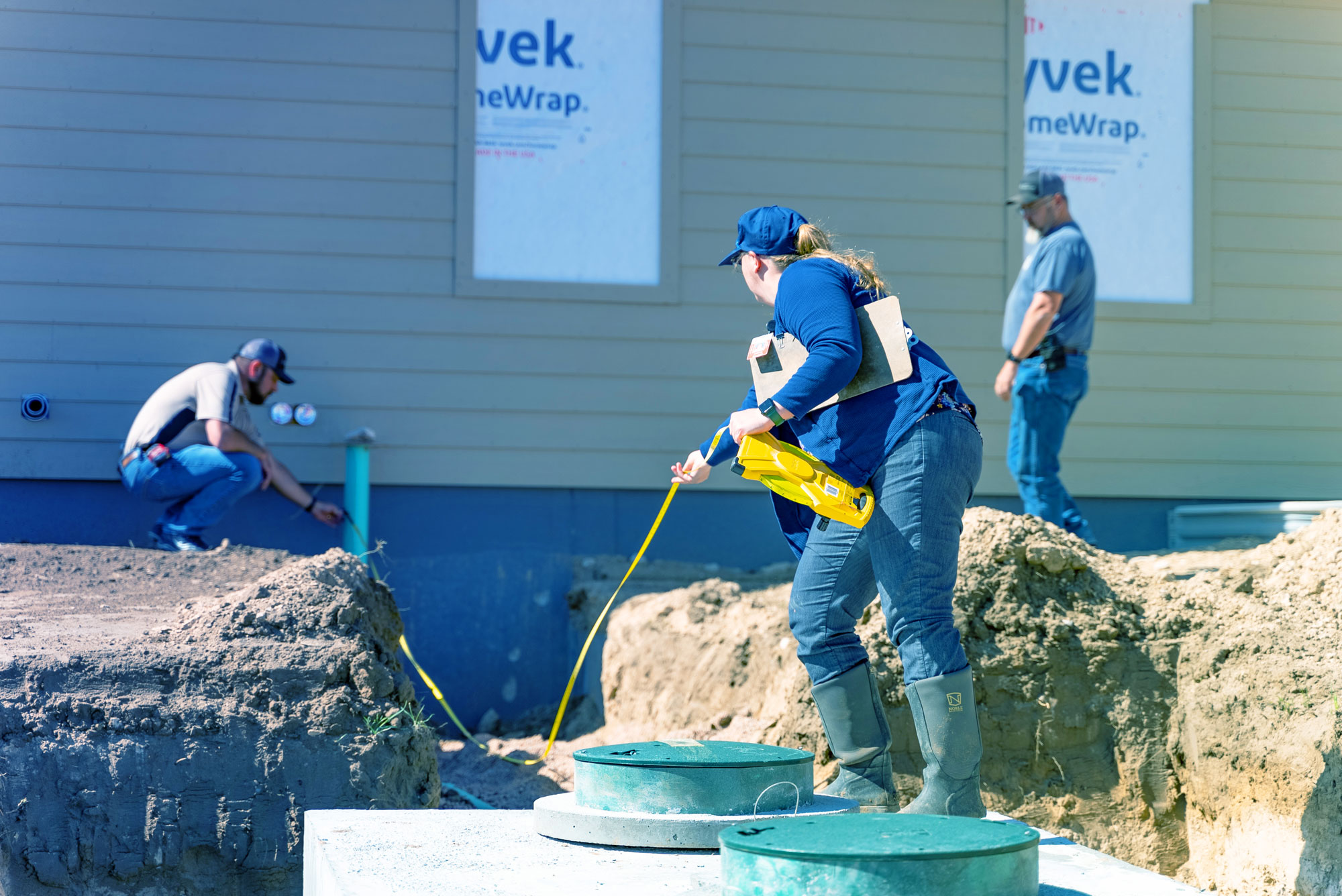Well and Septic Inspections

Through the Well and Septic Inspection program, Environmental Health specialists complete evaluations on rural properties in Laramie County during the conveyance or transfer of property ownership. The goal is to protect the health and well-being of both the people using these systems and the environment around them.
Evaluations are required by FHA, VA, and many conventional loan agencies. State Statutes (which you can view here) required the State Department of Health to adopt rules so that VA/FHA loans would not be required to meet all EPA drinking water quality standards.
What Happens During an Inspection?
During an inspection, an Environmental Specialist will review the following items:
- Backflow prevention on irrigation systems
- Comparison of septic system capacity vs. the present size of the home
- Illegal laundry waste dumping
- Integrity of the well
- Last pumping of the septic tank
- Surface evaluation of the septic system
- Water tests for Coliform Bacteria, Nitrates, Sulfates, TDS (plus lead and pH, when needed)
How to Request an Inspection
First, you’ll need to fill out the form below, either by downloading and completing a hard copy, or submitting online.
(Property evaluations will not be started until payment has been received. Submissions must have payment completed within 3 business days of submission. Nonpayment will result in the application denial.)
Well and Septic Evaluation Application (pdf)
Along with your application, you’ll be required to:
- Submit a septic tank pumping receipt that’s less than three years old
- Know the well registration number and depth. If you don’t have this information, please contact the Wyoming State Groundwater Engineer at 307.777.6150 to obtain it
Request a Refinance Water Test
This test is ONLY for bacteriological (total coliform & E. coli).
(Property evaluations will not be started until payment has been received. Submissions must have payment completed within 3 business days of submission. Nonpayment will result in the application denial.)
Refinance Water Test Application (online)
Refinance Water Test Application (pdf)